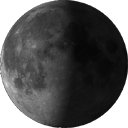
Nov 08
8 Apps That Turn Citizens into Scientists: Scientific American
Mobile applications for smartphones, tablets and other gadgets can turn just about anyone into a citizen scientist. App-equipped wireless devices give users worldwide the ability to act as remote sensors for all sorts of data as they go through their daily routines—whether it’s invasive garlic mustard weed in Washington State or red-bordered stinkbugs in Quintana Roo, Mexico.
Smartphones can automate data collection and incorporate many important data-gathering functions—such as capturing images, audio and text—into a single tool that can “stamp” the date, time and geographic coordinates associated with an observation, says Alex Mayer, a civil and environmental engineering professor at Michigan Technological University. Mayer is leading a project with Michigan Tech colleague Robert Pastel, an associate professor of computer science, and a group of students to develop new citizen science mobile apps.
via 8 Apps That Turn Citizens into Scientists: Scientific American.

Nov 05
Earth-Size Alien Planets Common Across the Universe, Study Suggests | Space.com

Credit: NASA Kepler Mission
Habitable alien planets similar to Earth may not be that rare in the universe, a new study suggests.
About one in five sunlike stars observed by NASA’s planet-hunting Kepler spacecraft has an Earth-size planet in the so-called habitable zone, where liquid water — and, potentially life — could exist, according to the new study. If these results apply elsewhere in the galaxy, the nearest such planet could be just 12 light-years away.
“Human beings have been looking at the stars for thousands of years,” said study researcher Erik Petigura, a graduate student at the University of California, Berkeley (UC Berkeley). “How many of those stars have planets that are in some way like Earth? We’re very excited today to start to answer that question,” Petigura told SPACE.com.
via Earth-Size Alien Planets Common Across the Universe, Study Suggests | Space.com.

